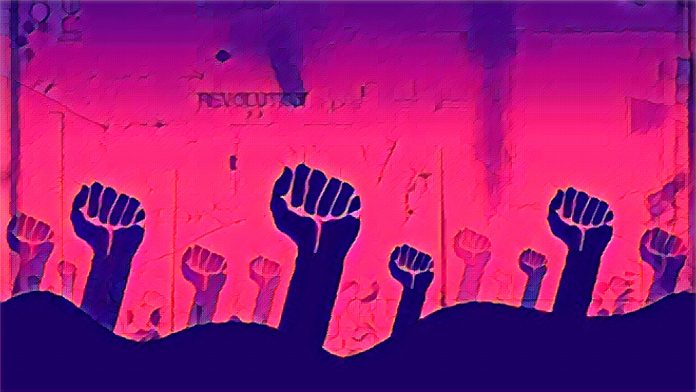KEY POINTS
-
A growing citizen-led movement is challenging Nigeria’s long-dominant political cabals, driven by youth activism and digital platforms.
-
Grassroots campaigns and civil society organizations are educating voters and demanding greater political accountability.
-
While challenges like vote-buying and economic instability persist, a cultural shift towards active civic participation is reshaping Nigeria’s political future.
For decades, Nigeria’s political scene has been tightly gripped by entrenched power blocs, often referred to as cabals—elite groups of politicians, business moguls, and military figures who have controlled the levers of governance from behind the scenes.
These cabals shaped policies, handpicked leaders, and manipulated national narratives to serve their own interests, frequently at the expense of the ordinary citizen.
However, a subtle but powerful shift is underway. Across the country, a quiet revolution is growing, one led not by political heavyweights but by everyday Nigerians demanding transparency, accountability, and real representation.
What was once considered an unchangeable political order is now being challenged from the streets, the screens, and the ballot boxes.
Young Nigerians, who constitute more than 60% of the population, are leading the charge. From the #EndSARS protests of 2020, which galvanized global attention, to grassroots political education movements like “Ready To Lead” and “FixPolitics,” citizens are rejecting the traditional power structures that have defined post-independence Nigeria.
“The time when a few men could sit in Abuja or Lagos and decide who rules the country is over,” said Dr. Aminu Bakori, a political analyst at the Centre for Democratic Studies. “Today, citizens are not just participating in elections—they are shaping the political discourse itself.”
Grassroots movements and digital activism fuel a new era of political accountability
At the heart of this change is the explosion of digital activism. With mobile penetration exceeding 50% and an increasingly tech-savvy population, social media platforms like X (formerly Twitter), Facebook, and WhatsApp have become powerful tools for political mobilization.
Online campaigns have successfully pressured public officials into action, exposed corruption scandals, and driven national conversations on critical issues like electoral reform, police brutality, and economic inequality. Groups such as the “Take It Back Movement” and “YIAGA Africa” are training young Nigerians on political organizing, campaign strategy, and civic responsibility, creating a generation of informed voters and potential leaders.
Civil society organizations are also playing a crucial role. Organizations like BudgIT and Connected Development (CODE) are using open data to track government spending, monitor projects, and empower citizens to hold leaders accountable.
“The old system thrived on ignorance and apathy,” said Zainab Abdulrasheed, coordinator of the Lagos-based VoteWatch initiative. “But today, information flows freely, and citizens are increasingly aware of their rights. They no longer accept empty promises.”
The political establishment is feeling the pressure. In the 2023 general elections, a record number of independent and third-party candidates contested for office, challenging the dominance of the two major parties—the All Progressives Congress (APC) and the People’s Democratic Party (PDP). Although many newcomers faced obstacles, including financial barriers and systemic intimidation, the surge signaled a new appetite for alternative leadership.
Some state governors, particularly in the South-West and Middle Belt regions, are now actively engaging youth organizations and civil society groups in policy consultations, a move political observers say would have been unthinkable a decade ago.
Despite these gains, challenges remain. Nigeria’s deep-rooted political culture, characterized by vote-buying, ethnic politics, and elite patronage, continues to pose significant obstacles. Economic hardship and insecurity also threaten to slow momentum as daily survival becomes a more urgent concern for many citizens.
Nonetheless, the shift is undeniable. The narrative that only “godfathers” can anoint leaders is steadily losing its grip. A new chapter is being written—not in smoke-filled rooms, but in town halls, classrooms, markets, and online forums.
“This is not a revolution of guns or protests alone,” Dr. Bakori emphasized. “It is a revolution of minds, a shift from passive citizenship to active ownership of the democratic process.”
As Nigeria approaches another election cycle, it is clear that while the cabals may not disappear overnight, their unchallenged dominance is over. The citizens are awake—and they are rewriting the rules of engagement.



